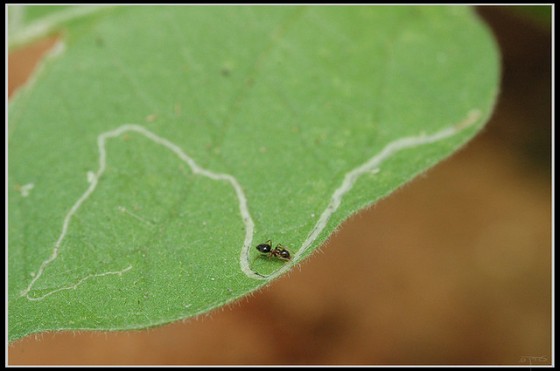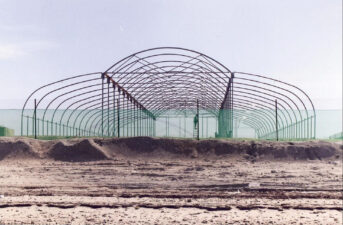 Leafminers tunnel their way through Middle Eastern tomato leaves. Can Jordan’s crops “ketchup” in their wake?
Leafminers tunnel their way through Middle Eastern tomato leaves. Can Jordan’s crops “ketchup” in their wake?
It is difficult to imagine a Middle Eastern home without tomatoes. It is a crucial ingredient in virtually every popular dish, including shakshuka. But lower income families in Jordan, Egypt, Israel, Syria and Lebanon are having to acclimate to this exact reality.
Most of the Middle East is buckling under a tomato shortage as a result of the summer’s crippling heat, as well as the proliferation of a tomato pest. Roughly a month ago, Israeli farmers warned that prices will be high at the markets while Egyptian wives unable to afford escalating costs are adding ketchup and food coloring to their traditional dishes. Some Jordanians are optimistic that they will be able to stabilize prices. Others are less so.
President of the Jordanian Farmers Union (JFU), President Ahmad Faour told The Jordan Times that “the “severe” shortage of tomatoes in the local market caused prices to rise significantly, and the situation became “desperate” because all countries in the region were affected by the heatwaves and a devastating pest which automatically limited the government’s choices.”
However, Mr. Faour also expects prices to drop since some crops were not affected by either the heat or the Tuta absoluta, which has mined so many other crops.
“Tomato farms in Ghor Al Safi and the southern governorates, which were not affected by the destructive insect, will provide local markets with adequate quantities,” he told the paper.
Anwar Haddad, an agriculture expert and executive director of the Jordan Exporters and Producers Association for Fruit and Vegetables was far less optimistic about the tomato crisis.
He told The Jordan Times that “tomatoes will remain in short supply in the coming days and prices of the produce will register no “significant” decrease.”
Mr. Haddad added that the Ghor Al Safi crops referred to are insufficient to meet the population’s demand.
Citrus was similarly unable to withstand the unprecedented high temperatures.
“Citrus fruit farms in the Jordan Valley, especially in the Northern Ghor, were deeply affected by the heatwaves,” which caused “profound” damage to oranges, lemons and grapefruit,” Faour told the paper, adding that “this will definitely harm the reputation of the Kingdom as an exporter of citrus fruits.”
While other Middle Eastern countries were impacted, Mr. Faour noted that Jordan cultivates its citrus crops at the lowest point on earth. Nonetheless, the citrus losses are less severe since Jordan will be possible to import from its neighbors.
Meanwhile tomatoes are in short supply and high demand in the entire region.
More on tomatoes:
The Tomato Has 790 Names! Scientists Have Culled A Few
Israel’s Shriveled Vegetables Will Increase Market Prices
Fresh Tomato-Coriander Salad to Spice up Your Summer
image of leafminer via Eran Finkle




Thanks Mary Ann. I’ll put out some feelers and get back to you, but in the meantime I can tell you that the whole region is struggling with a tomato shortage: Israel, Egypt… as far as solutions, different agricultural methods are being proposed.
This is very upsetting news. There are conflicting reports happening here. Is there any reliable information about the status of tomatoes now? As an orchid lover, we have problems to look out for, but (aside from vanilla) it’s a smaller scale than feeding an entire region. What is the latest solution proposed for this situation? Orchid Warning Signs